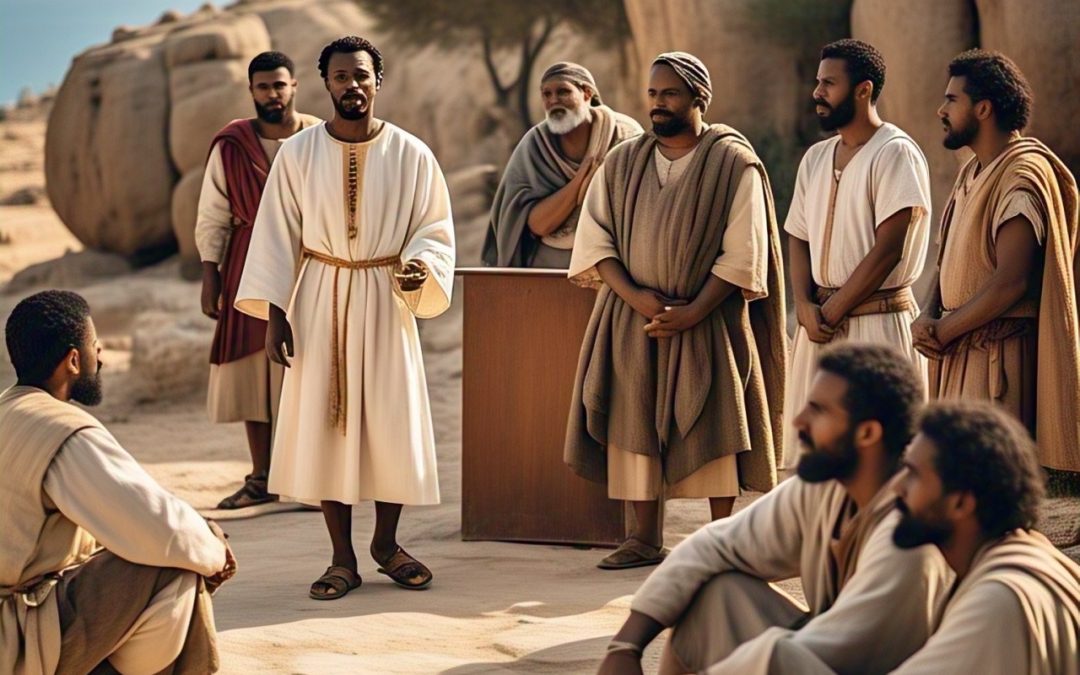Scripture consistently presents the displaced not merely as objects of compassion but as bearers of divine blessing to the world. This radical inversion—where those pushed to society’s margins become sources of revelation and renewal—represents one of the Bible’s most countercultural insights.
The story of Joseph exemplifies this pattern. Forcibly displaced through slavery and imprisonment, Joseph ultimately becomes Egypt’s savior and declares to his brothers, “God sent me before you to preserve life” (Genesis 45:5). His displacement becomes the very channel through which God’s redemptive purposes unfold. The outsider perspective Joseph gained through his forced migration enabled him to see possibilities invisible to those embedded within Egypt’s systems.
Ruth’s narrative similarly illustrates how a displaced person brings unexpected blessing. As a Moabite widow migrating to Bethlehem, Ruth initially appears vulnerable and dependent. Yet her faithfulness and determination not only secure her family’s future but place her in the lineage of King David and ultimately Christ Himself. Her story suggests that displaced persons often carry traditions, values, and perspectives that can enrich and even renew the communities that receive them.
The Babylonian exile, while traumatic, generated some of Judaism’s most incisive theological developments. Separated from temple worship, the exilic community deepened practices of Sabbath observance, Scripture study, and prayer that would sustain Jewish identity through centuries of diaspora. Their displacement catalyzed spiritual innovations that continue to bless the world.
Jesus embraced displacement as central to His ministry, “having nowhere to lay His head” (Matthew 8:20). This voluntary homelessness positioned Him to cross boundaries and engage diverse communities. His teachings consistently elevated those on society’s margins as bearers of spiritual insight—the Samaritan who understood neighborliness, the Syrophoenician woman whose faith challenged His mission’s scope.
The early church, scattered by persecution, spread the gospel throughout the Mediterranean world precisely because of their displacement. Acts recounts how dispersed believers established new communities that transcended ethnic and cultural boundaries. Their forced migration became the mechanism for Christianity’s expansion.
These biblical patterns speak powerfully to our contemporary context. They challenge us to recognize displaced persons not as problems to be solved but as potential sources of renewal, carrying perspectives that might help us reimagine our common life. They remind us that hospitality to strangers is not merely an ethical obligation but an opportunity to encounter God in unexpected guises. As Hebrews 13:2 reminds us, “Do not neglect to show hospitality to strangers, for thereby some have entertained angels unawares.”
Prayer
God of Joseph and Ruth, You who work through the journeys of the displaced, open our eyes to recognize the gifts carried by those who come from afar.
Where we see only need, help us discover blessing. Where we perceive burden, reveal to us opportunity. Where we focus on difference, show us the enrichment diversity brings.
Thank You for the wisdom that comes through displacement, for perspectives that challenge our assumptions, for stories that expand our understanding, for traditions that deepen our faith.
Forgive us when we have missed Your angels in disguise, when we have failed to receive the strangers You have sent as gifts, when we have seen only what displaced people lack rather than all they bring.
Help us to remember Joseph, whose displacement saved nations, Ruth, whose migration renewed a community’s hope, the exiles, whose dislocation birthed new expressions of faith, and Jesus, whose homelessness created space for all to belong.
Teach us true hospitality that recognizes the sacred exchange; not just offering shelter, but receiving insight; not just providing for needs, but welcoming transformation; not just extending charity, but embracing mutuality.
May we build communities where the displaced find not only refuge but opportunity to share their gifts, wisdom, and vision.
Until Your Kingdom comes in fullness, when no one shall be uprooted or excluded, we pray in the name of Christ who makes His home among us.
Amen.


Recent Comments